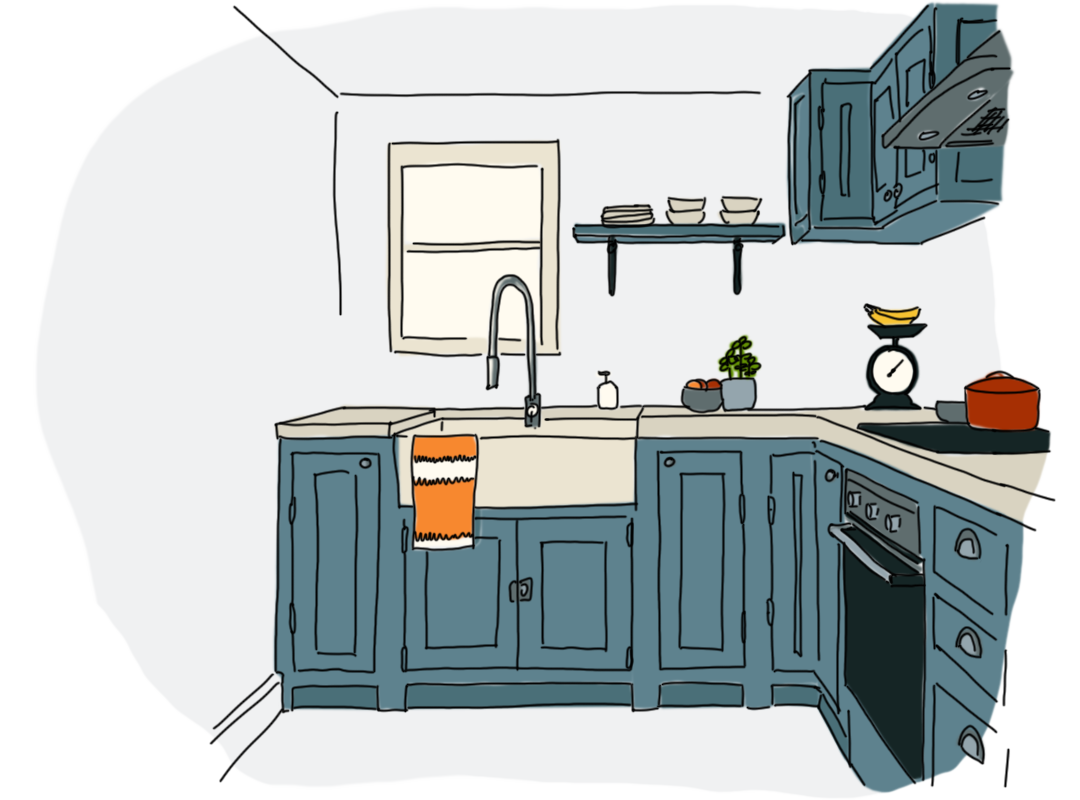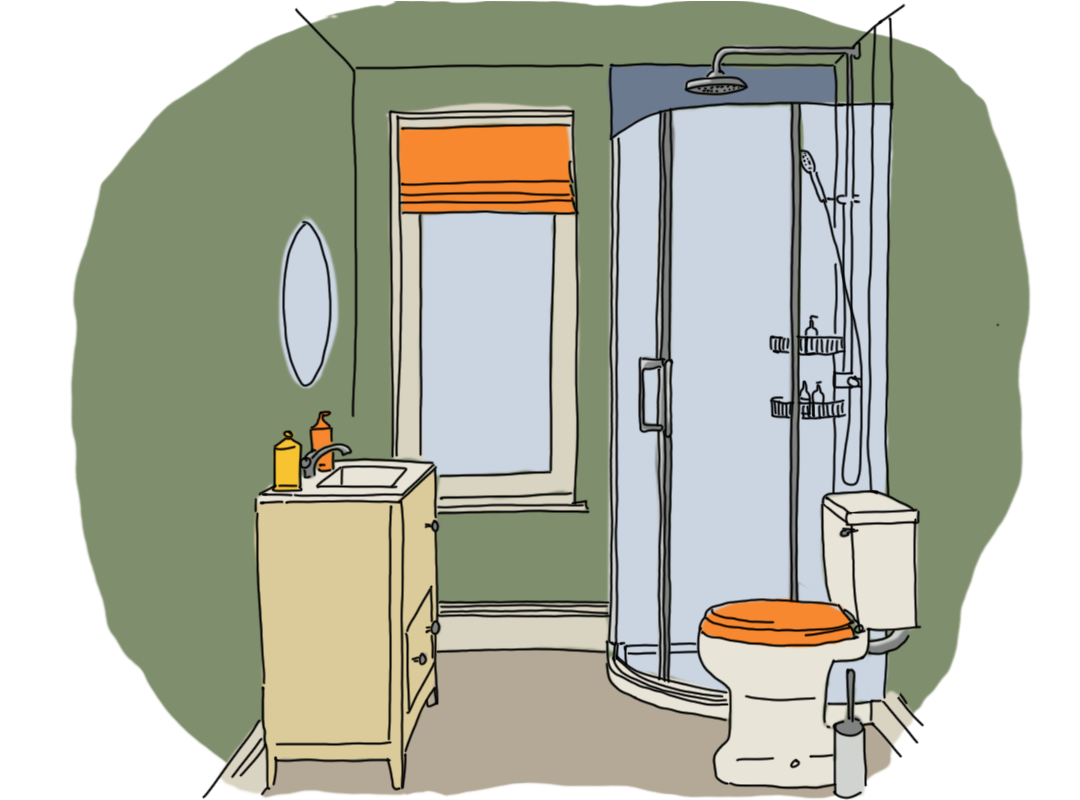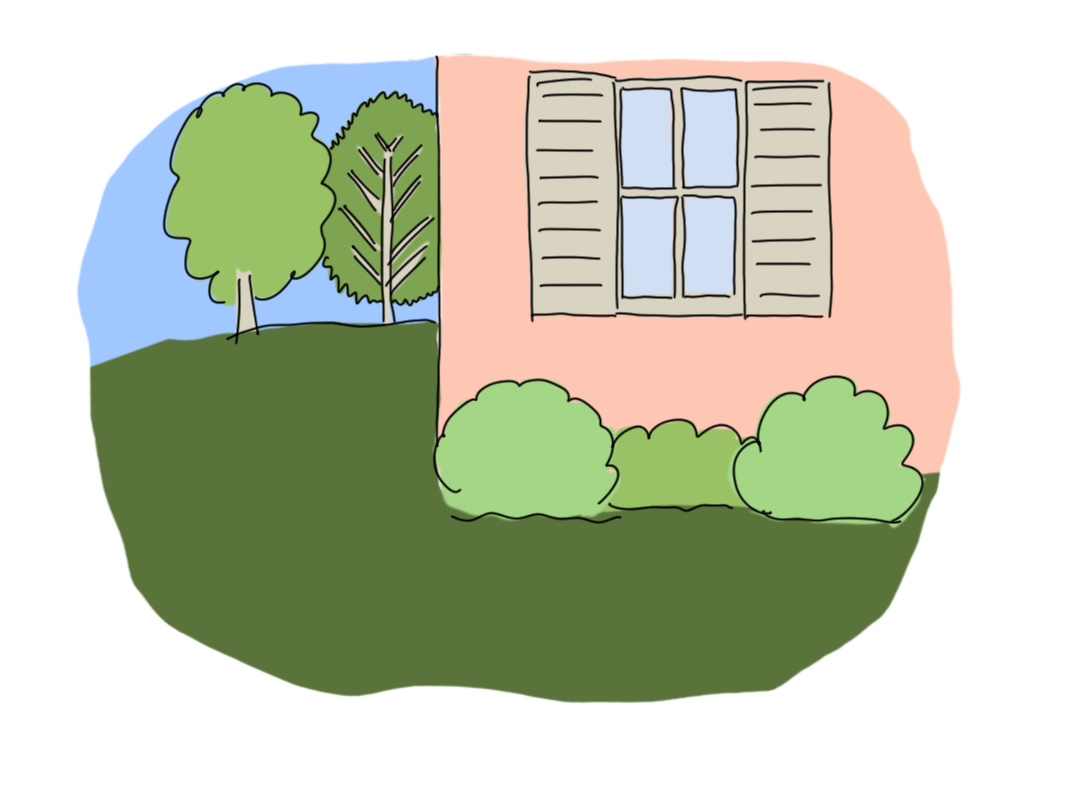Water plays a vital role in our lives. We use it almost every moment, every day – from drinking tap water to washing, cooking, cleaning or flushing. It also needs energy to heat the water for showers, baths and washing dishes. Whatever the weather, saving water is good for the planet and your pocket.
The average person in Scotland uses about 165 litres of water every day without really thinking about it, which is a lot. High quality water is something we take for granted, all we have to do is open our taps and there it is clear and fresh. Scottish Water uses a huge amount of energy to make water safe to drink and transporting it to our homes. With that Scottish Water is one of the largest electricity users in the country; collecting, treating, and pumping drinking water to our homes, and treating the waste water leaving our homes before it goes back into the environment. At home, we heat up water to make a cup of tea or heat our homes, which requires more energy, increases carbon emissions and household costs.
Why save water in Scotland?
Water is one of the most previous resources. Parts of the UK are already subject to water stress and our future will be facing more extreme weather events, which will make our water supply more unpredictable. With changing climates and increasing draughts during summer we are facing a future with increasing water shortages which will have an impact on our access to water and our environment.
How To Save Water

In the Kitchen
- If you like cold drinking water put a large bottle of tap water in the fridge to save waiting for the tap to run cold. This can save up to 10 litres of water a day.
- Plants love to drink leftover drinking water from your glass.
- Only fill the kettle with the amount of water needed.
- Put lids on saucepans to reduce the amount of water lost during cooking.
- Put your dishwasher & washing machine on with full loads and use an eco-setting if possible.
- A washing-up bowl in your sink can reduce how much water you use

In the Bathroom
- Turn the tap off while brushing your teeth. A running tap can waste more than 6 litres of water per minute!
- Purchase a water-efficient toilet (one with a dual flush)
- Get a cistern displacement device to save up to 5,000 litres of water every year. These are free from most water companies.
- Take short showers, aim for 4 minutes if you can.
- Use cold water rather than hot water when it makes sense, leaving the tap running waiting for warm water wastes a lot.
- Shower instead of bathe. An average bath uses around 80 litres of water, a shower typically uses between 6-45 litres.
- Switch to an aerated showerhead. Power showers use up to 15 litres of water per minute. Aerated showerheads approx. 6 litres but don't compromise on water pressure!
- Install water-efficient taps and showers to minimise heating water – this will save you money on your water and energy bills, as well as decreasing your carbon footprint.
- Fix dripping taps. A dripping tap can waste 15 litres of water a day!
- Fix leaky loos, they can waste between 200-400 litres water a day!

In the Garden
- Stop watering the lawn during dry spells, grass will bounce back when it rains. Hoses & sprinklers can use as much as 1,000 litres of water an hour!
- If you have to water the garden - water in the early morning or evening when evaporation is lowest using a watering can
- Use a water butt to catch large amounts of rainwater and use this to water your plants, clean your car and wash your windows.
- Use mulch and bark in your garden, this helps to reduce evaporation by up to 75%.
- Plant drought-resistant plants that don’t require as much watering.
- Avoid using pressure washers as they waste a lot of water.
GetWaterFit
Find out how and where you use water in your home and discover easy ways to make savings. So you can get – and stay – water fit.Scottish Water
Network updates & moreAdvice on Energy & Water Label Scheme
The Unified Water Label is a smart tool that provides a means to identify water-using products
More Resources
Water
Resources can be found here...
Sustainable Dundee Map
Visit the Sustainable Dundee Map to find out what happens locally
